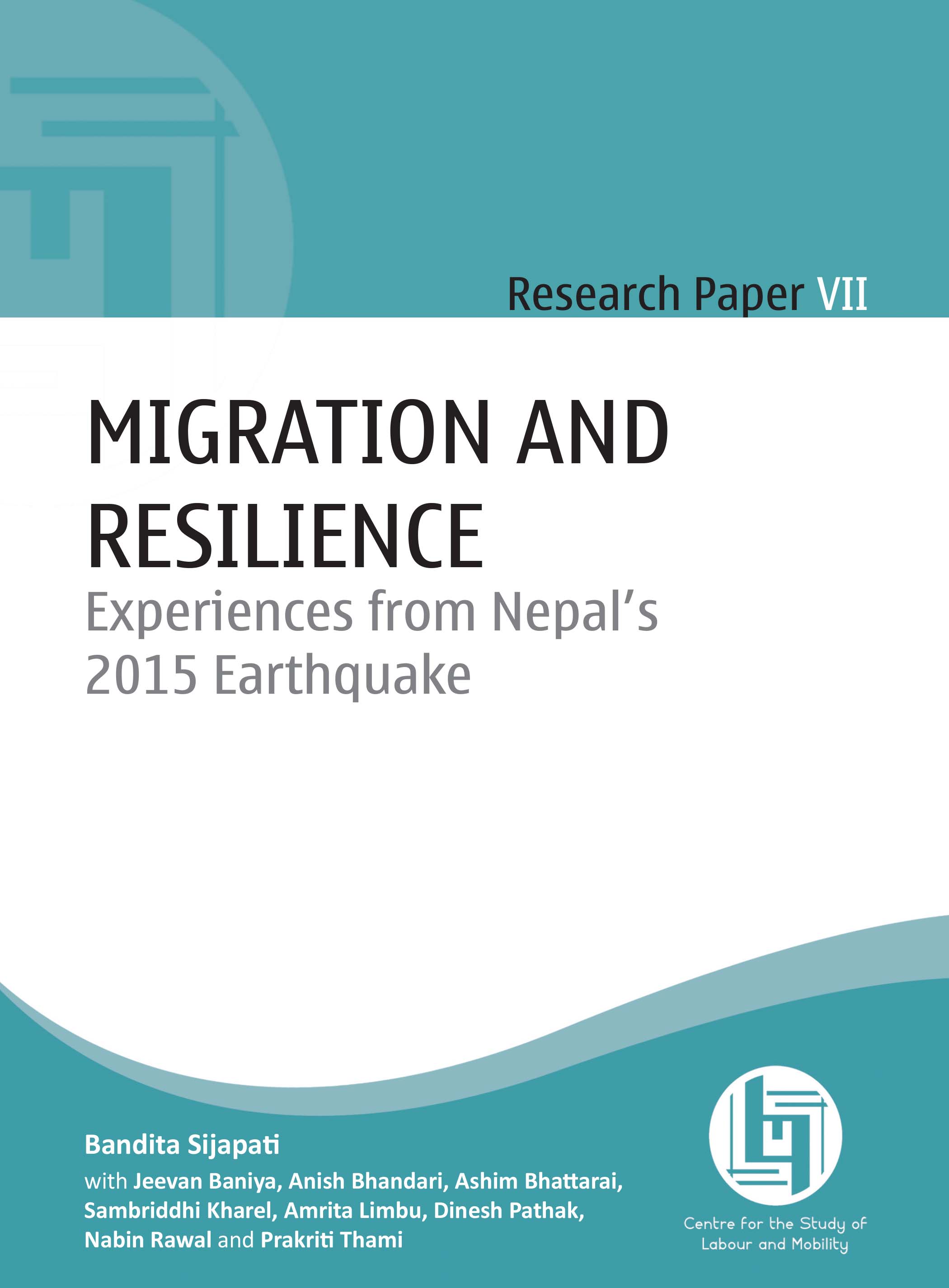
Migration and Resilience: Experiences from Nepal's 2015 Earthquake
Author(s): Bandita Sijapati with Jeevan Baniya, Anish Bhandari, Ashim Bhattarai, Sambriddhi Kharel, Amrita Limbu, Dinesh Pathak, Nabin Rawal and Prakriti Thami
Year of Publication: 2015
Publication Type: Research Paper
Published by: CESLAM
In the aftermath of the magnitude 7.8 earthquake that struck central Nepal on 25 April 2015, and its aftershocks, particularly a major one of magnitude 7.3 on 12 May 2015, issues related to the links between migration and disaster-preparedness as well as coping strategies adopted by the affected population have come to the fore. To examine such linkages, the Centre for the Study of Labour (CESLAM) undertook a quick assessment in four of the 14 severely affected districts, namely, Sindhupalchowk, Kavrepalanchowk, Dhading, and Kathmandu, to understand how households with migrants—both external and internal—have coped with the natural disaster and whether there is any evidence of greater resilience on the part of such households.


GET IN TOUCH